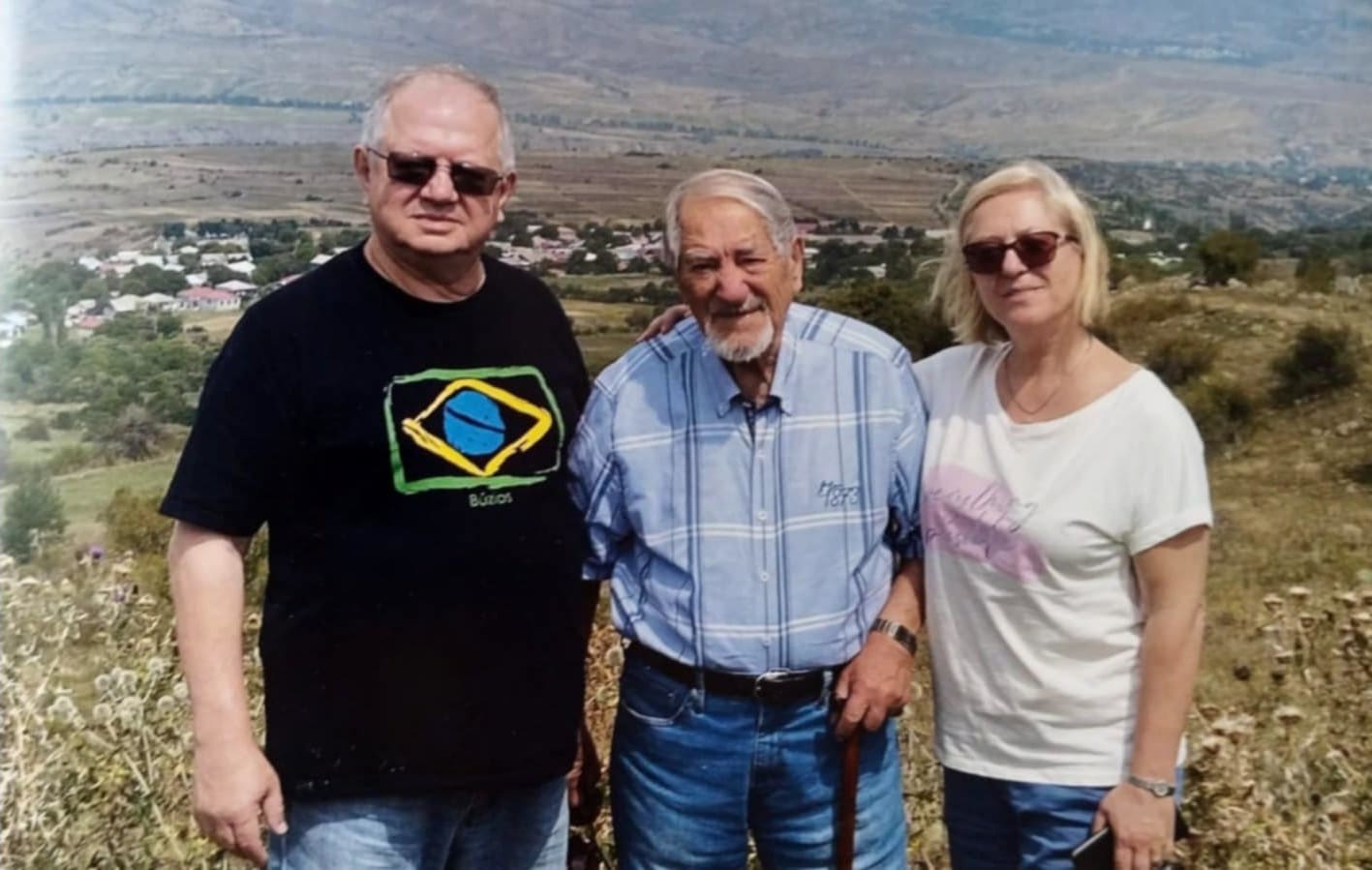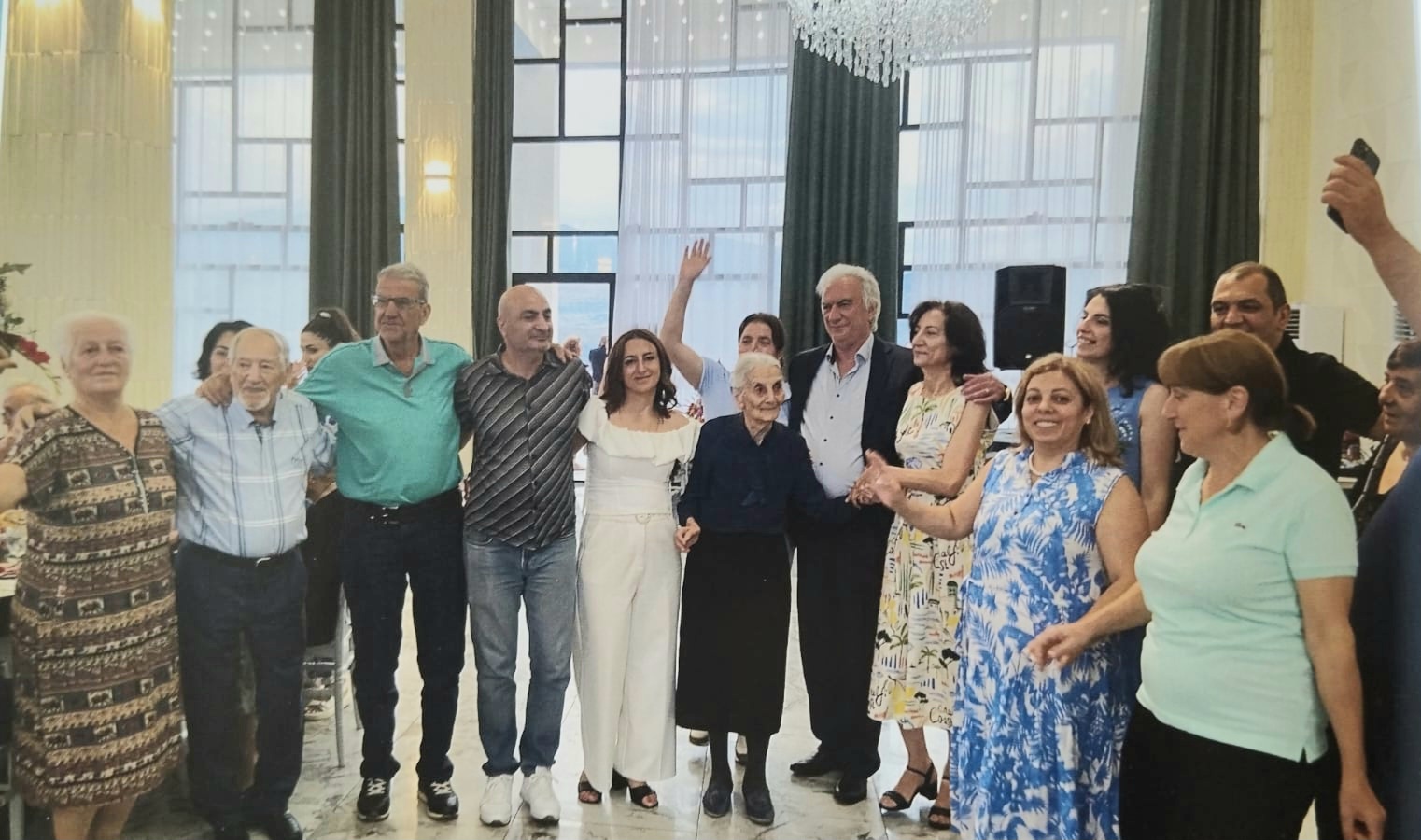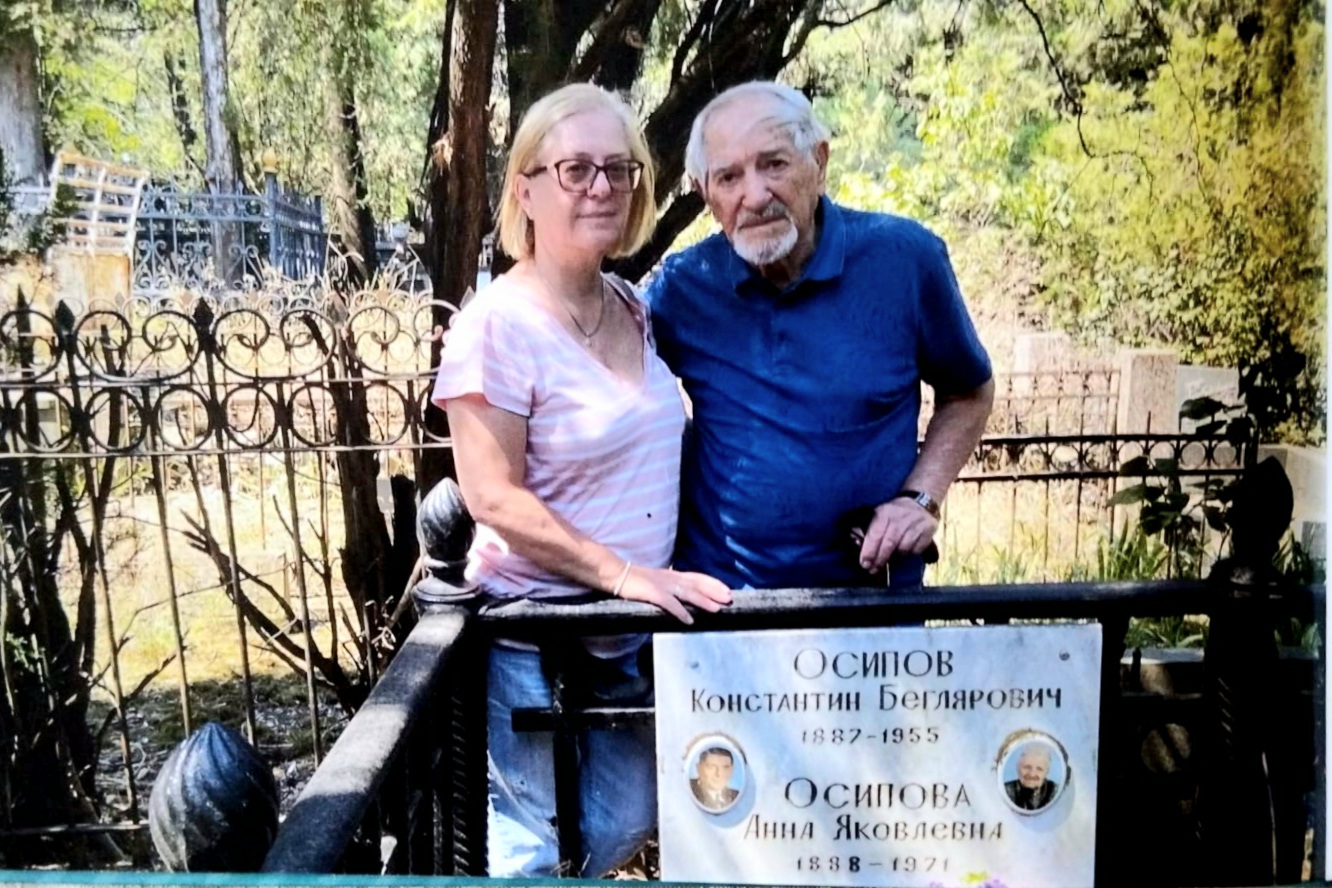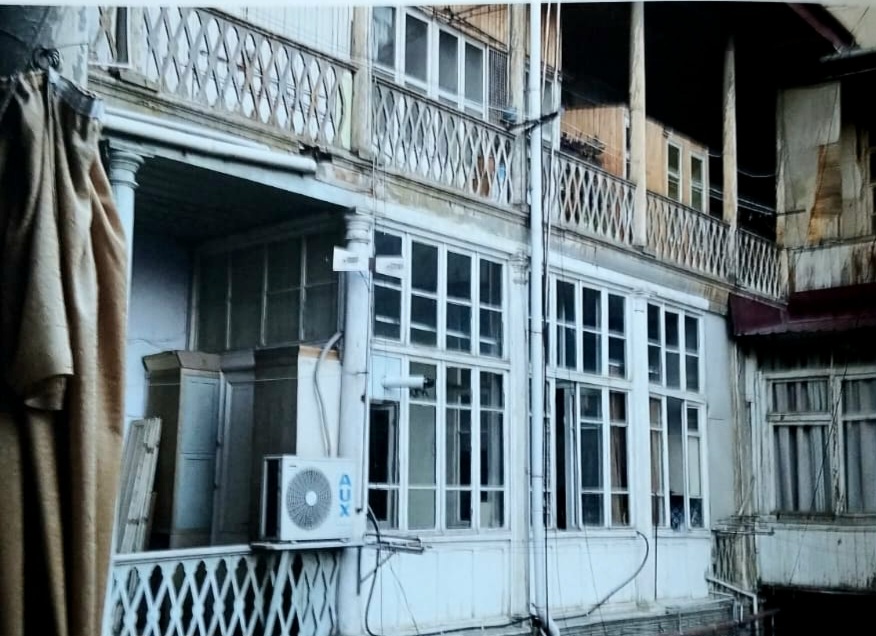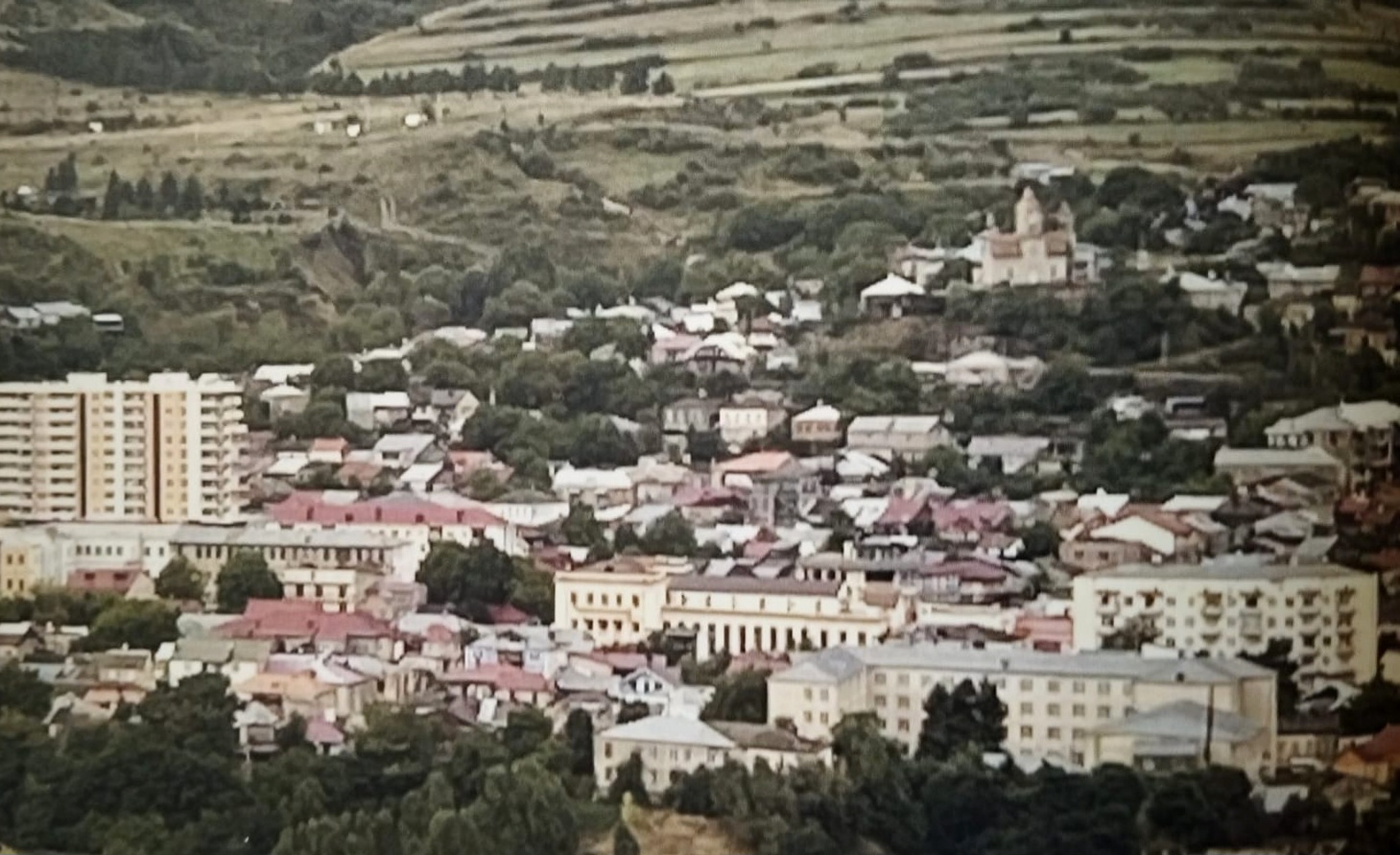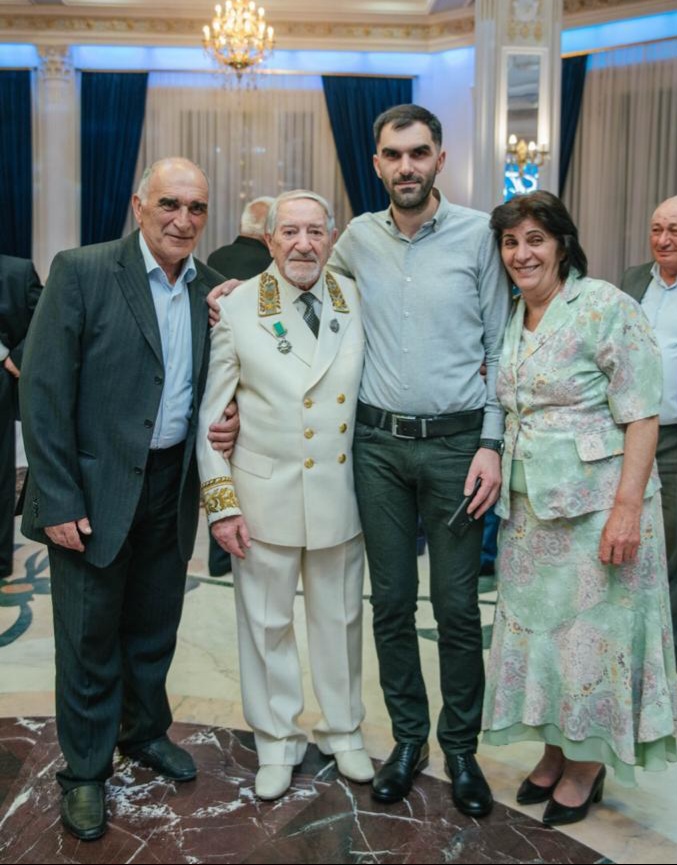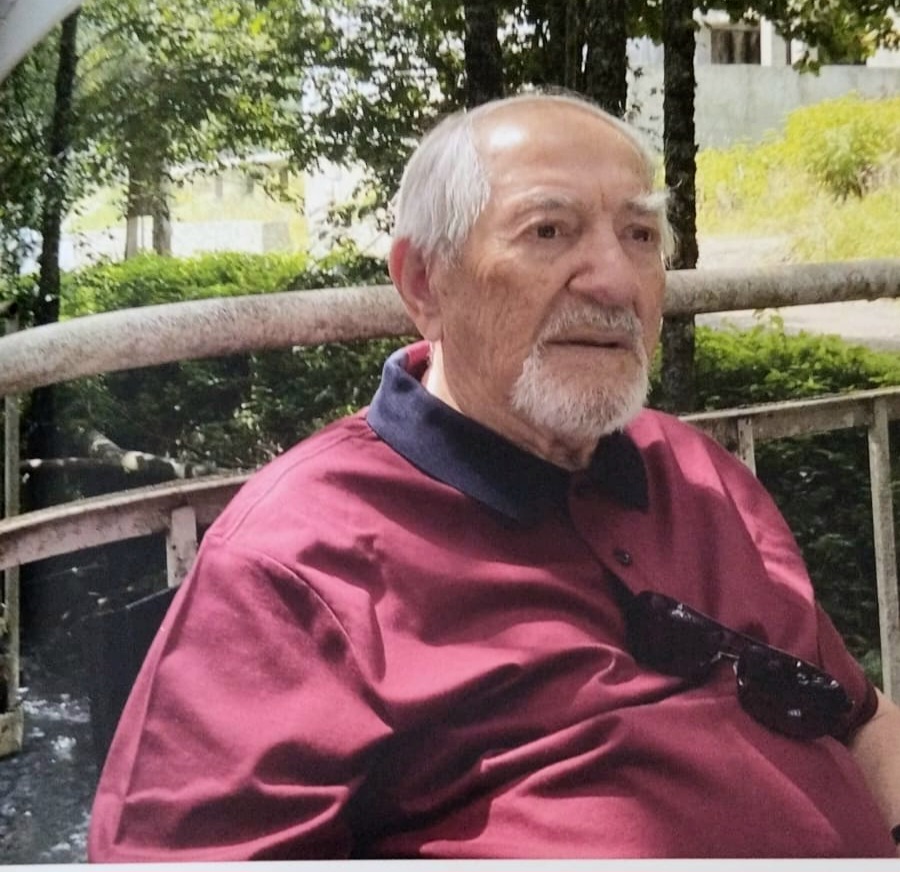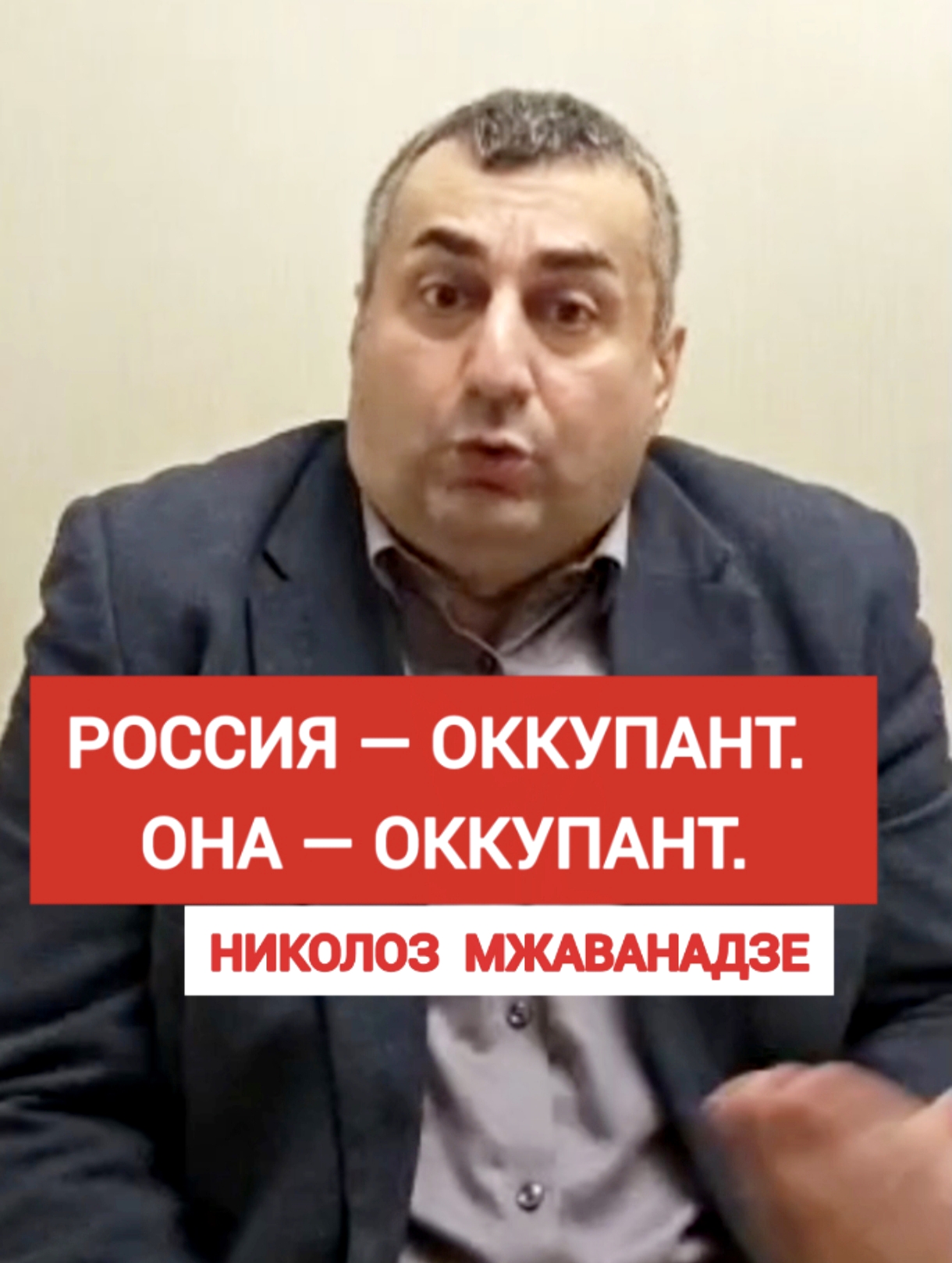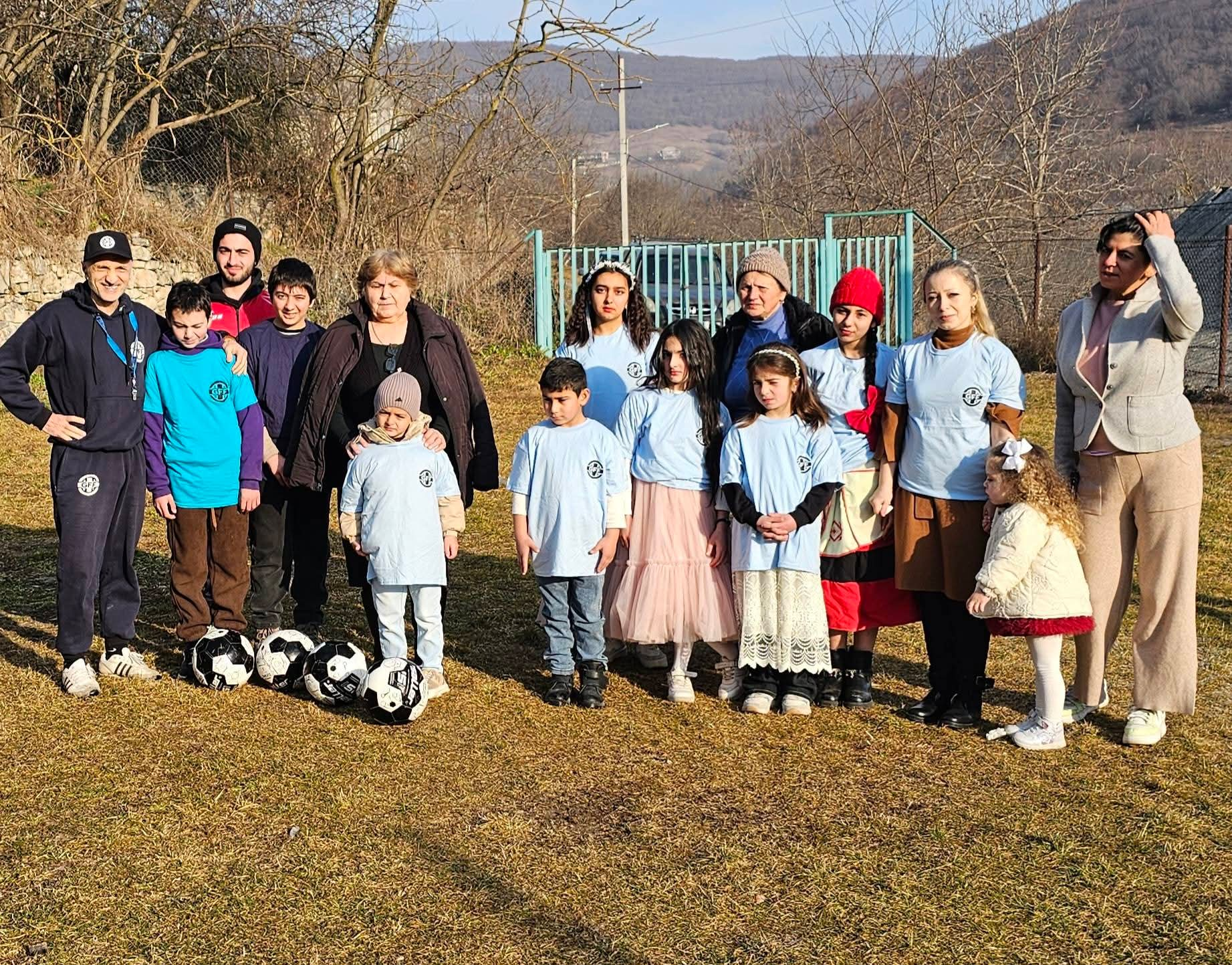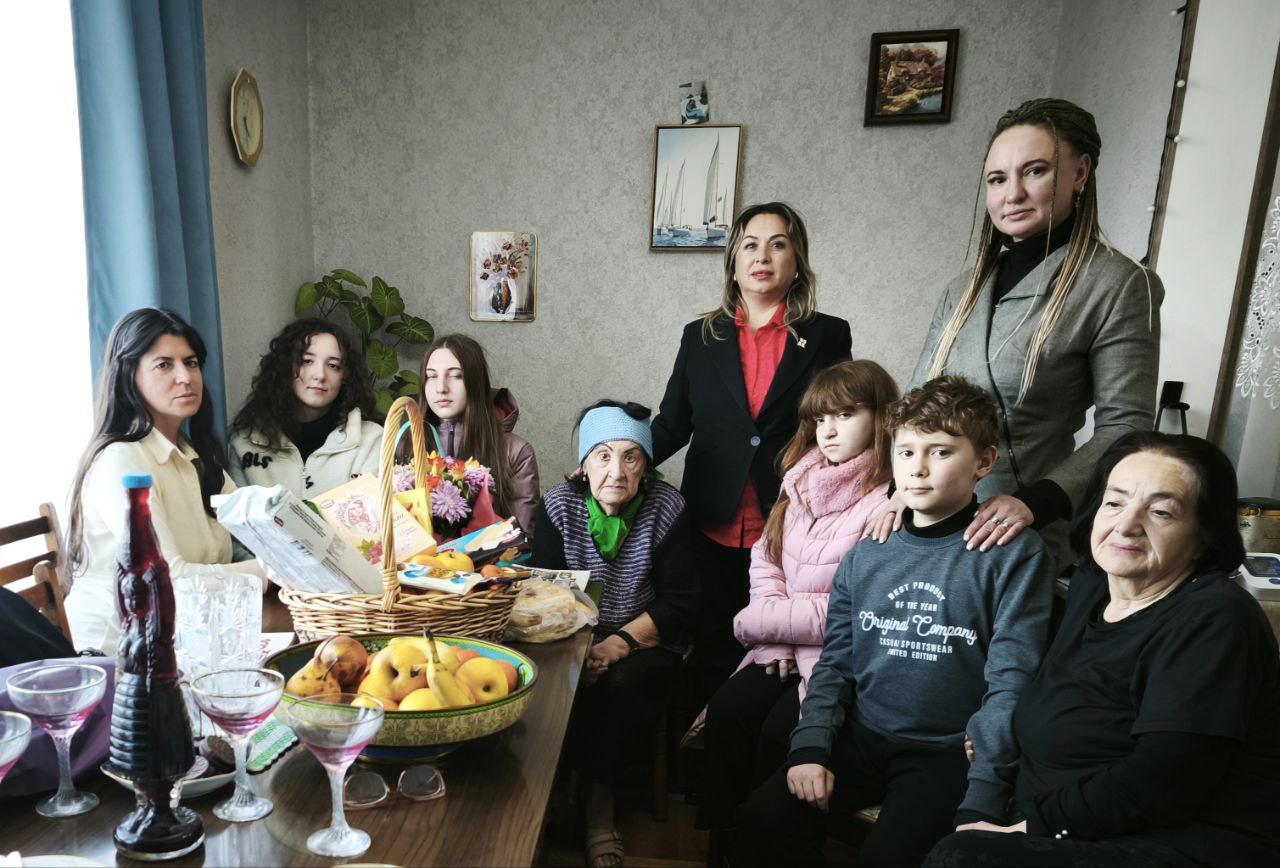Legendary diplomat Pavel Akopov: "Georgia is my homeland"
The famous Soviet diplomat, President of the Association of Russian Diplomats, 98-year-old Pavel Semenovich (Pogos) AKOPOV never forgot about his homeland, and in the first years of Georgia's independence he helped it establish diplomatic relations with the countries of the East.
Pavel Semenovich worked for 15 years at the Soviet embassy in Egypt, where he rose from third secretary to chargé d'affaires, and also took part in establishing diplomatic relations between the USSR and the Gulf countries. In different years, he was promouted the Ambassador Extraordinary and Plenipotentiary of the USSR to Kuwait and Libya. In the conversation, Pavel Akopov noted that he wants to come to Akhaltsikhe in the summer, where he plans to open a museum. He tries to celebrate his birthday in his native village every year.
- I was born in Georgia, in the village of Kvemo Skhvilisi, which is 4 kilometers from Akhaltsikhe. Then, after my mother's death, in 1934, Konstantin Beglarovich Osipov took me to Tbilisi to be raised. There, without knowing a word of Russian, I went to the first grade of the Armenian school in Sololaki. This is the famous school No. 72, where Hovhannes Tumanyan, Viktor Ambartsumyan, Tigran Petrosyan and other great Armenians studied. I studied there for one year. During this time, I had private lessens, so I learned Russian and went to the second grade of the 43rd Russian school. It is also located in Sololaki, on the former Engels Street. I studied there until the 4th grade, and then returned to the village again. I studied at the Russian school in Akhaltsikhe.
- And you walked several kilometers every day?
- Yes, I walked, I left early in the morning and covered 8 km every day. After finishing the 7th grade, I entered the Tbilisi Technical School of Railway Transport named after Eliava.
- You were 15 years old when the Great Patriotic War began. Where were you at that time?
- I was already a technical school student. Classes had not yet started, and I was in the village. Everyone was working in the fields, and when the war was announced, there was some special perception. People rushed back to the village, they felt a huge danger, especially women. Within 24 hours, the collective farm organized a recruiting station. The guys and I went to the recruiting station, which happened to be in our 72nd school. We were told that we were still small, we were not even 16 years old: "Go study." When we turned 16, we came again, and they explained to us that by decision of the State Defense Committee, students of railway schools are not draftable, under martial law, must work in the rear. We, technical school students, studied half a day, worked half a day in the system of the Transcaucasian Railway Administration. I also worked at a factory, where I mastered the specialty of a turner. We saw people off from the village straight to the front. More than 200 people left, 72 did not return. They erected a monument to them on the mountain of our village, a monument to a Soviet soldier. And under the monument there is a memorial museum, where there are photographs and biographies of all the dead. It has been preserved to this day, the architect is Tumanyan from Armenia. At the opening of the monument I was already there as a diplomat. The entire war period was spent working on the collective farm, all this was counted towards me, then I was recognized as a veteran of the Great Patriotic War, a home front worker.
- You were at the origins of the construction of the metallurgical plant in Rustavi...
- Yes, after graduating from technical school, my friend and I were summoned to the Ministry of Internal Affairs of Georgia and urgently sent to the construction of the Rustavi Metallurgical Plant. And all the builders were transferred there from Nizhny Tagil. From the very beginning of its construction, for 2.5 years, I worked there. Later, when I decided to go to study in Moscow, they wouldn’t let me go, because I was considered a cadre of the Ministry of Internal Affairs, but I went anyway. And in 1947 I entered the Moscow State Economic Institute. After graduating, I was the only one from the entire graduating class who was accepted to the Supreme Planning Bodies as a cadre officer, to Koganovich.
- And how did you end up at the Higher Diplomatic School of the USSR Ministry of Foreign Affairs, in diplomacy?
- To be honest, I didn’t want to go into diplomacy, because I was happy with my job. I worked under Kosygin, I was already the head of a sector – it was high, the CPSU demands it, so if it’s necessary, it’s necessary. There was no other way out. I graduated from the Higher Diplomatic School and was sent to Egypt.
- You knew Gromyko, who remained a key figure in the USSR’s foreign policy until the end of his life. How do you remember him?
- I can talk a lot about Gromyko. I was fortunate to work under his leadership and to receive people in Egypt when I was the USSR Chargé d'Affaires there. And then I worked with him in Moscow. I believe that he was one of the outstanding Soviet, historical diplomats who made a huge contribution to ensuring a peaceful life for all of humanity. Firstly, he is one of the authors of the UN Charter and the UN Security Council, and also the main author of the fact that the Security Council has 5 permanent members who have the right of veto, which the Americans and Westerners are against today. He gave me a lot of advice.
When, already in the post of Chairman of the Supreme Soviet of the USSR, he saw me off to Libya, he said: “It is better not to say what you should say a thousand times than to say what you shouldn’t say once. If you meet with Gaddafi, be extremely frank, never tell a lie.” I asked, where is the limit of frankness? And he answered: “That’s why you are an ambassador, to determine.” I consider myself a student of Gromyko. We published a book for his centenary, which includes my article.
- You often come to your historical homeland…
- Now I go to Tbilisi almost every year, to the village, I spend at least a month there. It always instills some kind of inner strength in me. I love Georgia, I know it better than other republics. I must say that I am connected with Georgia by many things, including my work with Eduard Shevardnadze.
- In 1991-1994, as a personal representative of the heads of state of Georgia and Armenia, you visited a number of Arab countries and successfully held negotiations on establishing diplomatic relations.
- I was Shevardnadze's personal representative and established diplomatic relations between Georgia and Kuwait, the UAE, and Libya. I traveled to these countries twice on his behalf. When he left the Foreign Ministry, he agreed with Gorbachev to recall me from Libya and make me his deputy. Shevardnadze then headed the Foreign Policy Association. Then he himself offered me to be his deputy. I agreed. And when Zurab Tsereteli persuaded him to return to Georgia, Shevardnadze offered me to go too, but I explained that I could not. And then he said that I would be his representative. Georgia is a very native place for me, I am watching the ongoing political unrest. We support and root for the new, young leadership that has embarked on the path to making the country sovereign and independent.
- Your son has also chosen the profession of a diplomat.
- My son Sergei Akopov chose this path back in school, he dreamed of it since childhood. For the last 12 years, he was the Russian ambassador to Brazil. He retired 2 years ago. My daughter Margarita became a journalist. I am also the president of the association of Russian diplomats, I headed the association as chairman for 16 years - from 1996 to 2013.
- You are also a member of the presidium of the council of veterans. What would you wish for the youth?
- I have lived through 5 wars in my life. I know what war is. But what we experienced during the Great Patriotic War - only the Soviet people could have experienced this, who fought for their freedom, for sovereignty and the preservation of the state. I would like our youth not only to read and study, but also to make a direct contribution to strengthening the economy, culture, and science. I wish for countries to be independent and strong. And secondly, the world is now entering a new stage of development. International relations are acquiring a different character. Now it is important to preserve and increase our strength. This is my deep conviction. There must be unity. Georgia was, is, and remains a native, dear country for us, wherever we are. And to be honest, I have made my own contribution. If you open any reference books, American or English, it says - Akopov Pogos Semenovich: born in the Akhaltsikhe region, Georgian SSR. I belong to Georgia. I would like for Georgia to treat us, like me, as their own. Georgia is our homeland, we are proud of it. We wish Georgia and its people peace and prosperity.




